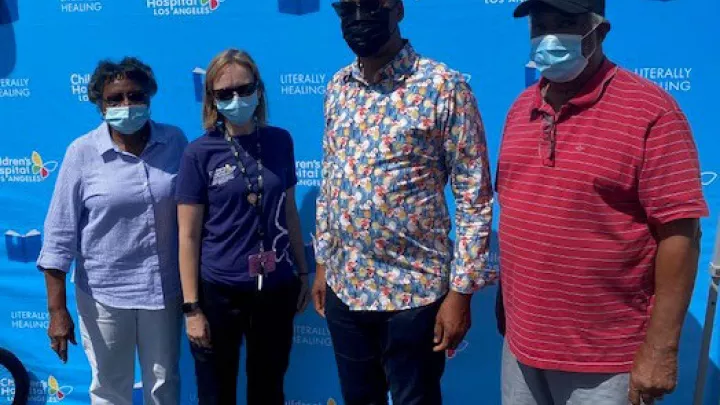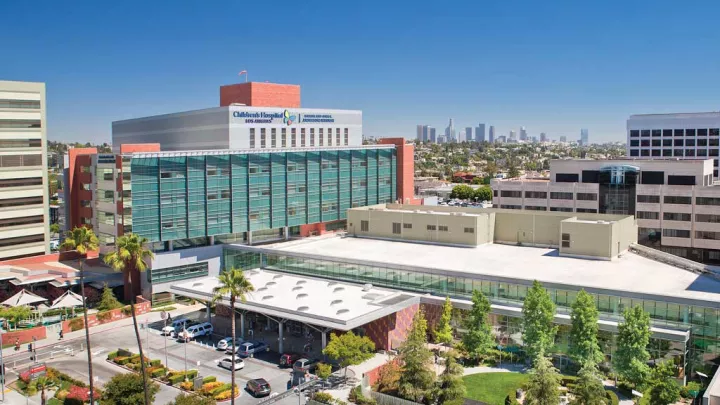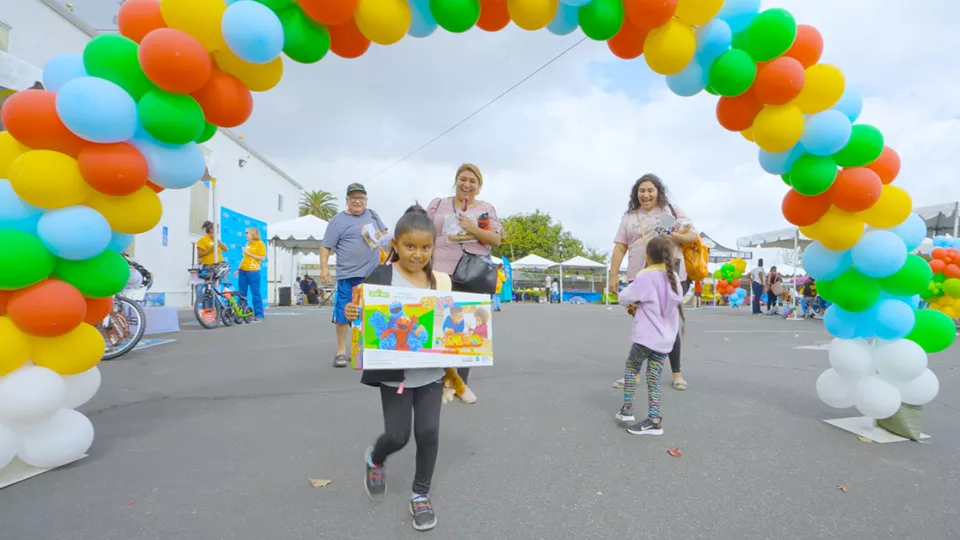
A Deepening Partnership: How CHLA and Macedonia Baptist Church Are Tackling Health Inequities in South L.A.
As the lead pastor of Macedonia Baptist Church, Rev. Dr. Shane B. Scott is accustomed to hearing from parishioners. But on one occasion, the words spoken by a 98-year-old woman struck a particular chord.
“She told me she wasn’t planning to get vaccinated, but because we had it here at the church, she decided to do it and thought that saved her life,” says Rev. Scott. “That’s not just help—that’s hope.”
The church, located in the Watts area of South Los Angeles, was the site of four COVID-19 vaccination clinics staffed by clinical team members from Children’s Hospital Los Angeles in early spring 2021. The events made accessing the vaccine more convenient for early childhood educators and residents in the neighborhood, and also helped to break down hesitancy around getting the shot.
“Disenfranchised communities across this city have not always been treated well, so I think partnering with faith groups brings in a certain level of trust,” says Rev. Scott. “There are times when I get a phone call and I want to say, ‘But, wait, why are you calling me? You should be calling the doctor.’ But because they don’t trust the health care system, they call their pastor instead.”
A shared commitment
Over the last century, South L.A.’s landscape has changed, but there has been one constant throughout the years: Macedonia Baptist Church. Founded in 1908, it was the first Black Baptist church—and today the oldest—in Greater Watts. Its longstanding history and deep roots have made it a prime partner in helping to address health disparities in the region.
“The church is often a central figure in African-American communities,” says Alejandro “Alex” Guerrero, Executive Director of the Macedonia Community Development Corporation, which serves as the church’s outreach entity. “It’s the honest broker, and in a place where there are multiple gangs, it’s also seen as neutral territory.”
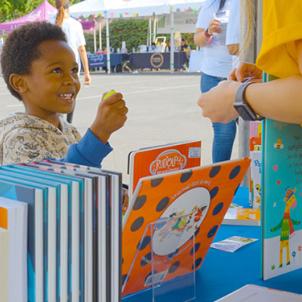
Jennifer Baird, PhD, RN, Director of Clinical Services Education and Research at Children’s Hospital Los Angeles, who helped coordinate the COVID-19 vaccination clinics, attended a service at Macedonia Baptist Church. “I was really inspired by the strong role the church plays and how it can be a mechanism for promoting health equity as an anchor institution in the community,” she says.
“Our hospital’s commitment to supporting families across L.A. County really connects with what they’re trying to do,” she adds.
At one of the COVID-19 vaccination clinics, Dr. Baird and Rev. Scott began talking about ways the two organizations could continue working together. A family-friendly fair quickly came to mind. The COVID-19 vaccine would once again be available, but so would numerous other resources. A few months later, the inaugural Family Health and Wellness Fair took place in the church’s parking lot. Attendees were able to pick up school supplies and books from CHLA’s Literally Healing program, have their vital signs checked through health screenings, participate in art and music therapy, and learn first-aid training.
Caring for the community
This year’s fair was held on Oct. 22, 2022, and included many of the same stations, plus CHLA therapy dogs and an expanded vaccination clinic that offered COVID-19 boosters and the flu shot.
“In Watts, people are used to hearing about supply chain issues, so they might not be getting a flu shot or will have to wait,” says Guerrero. “The fact that this was available to them, along with the latest COVID booster, the feedback I heard was that they felt cared for and paid attention to.”
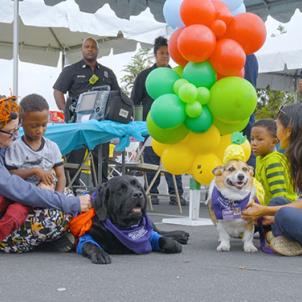
Guerrero, Rev. Scott, Dr. Baird and the CHLA team who helped organize the fair hope it will become an annual event and aim to have a lasting partnership that will have a greater presence and impact in the community. Some future goals include having CHLA doctors, nurses and other health care professionals who also grew up in under-resourced communities come out to share their paths into the health care field, or having HR personnel host a resume-writing workshop.
Health, however, will remain at the center of it all.
“A ZIP code should not determine the life expectancy nor the diseases that we get,” says Guerrero. “It breaks my heart that what should be simple things—medical care, access to fruits and vegetables—can be complex for some. It all starts with being healthy. If you’re not, you can’t get a job, you can’t provide for your family. It’s all connected.”
Planting the seeds
Though there are plenty of medical institutions in Los Angeles County, when it came to partnering with one, Rev. Scott ultimately knew it would be Children’s Hospital Los Angeles. He has always had a heart for pediatric medical institutions, and during his early years as a minister in Northern California, he would visit local children’s hospitals.
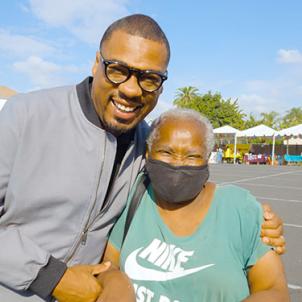
“I was just amazed, impressed and inspired by the level of care there,” he recalls. “Sick children were being loved on by everyone from doctors and nurses to janitors and phlebotomists as if these children belonged to them.”
Beyond the urgent, lifesaving medical care that children’s hospitals provide, it’s the dedication to health at the earliest stages of life that Rev. Scott believes can shape a community.
“In communities like Watts that are so overtaken with other health disparities, socioeconomic issues and crime, children are often forgotten about. But if you don’t invest in the health and well-being of children early, then you don’t have healthy and productive adults later,” he says.
“By working with Children’s Hospital Los Angeles,” adds Rev. Scott, “I hope we are planting the seeds that can ultimately germinate into something much bigger. It’s a relationship that is deepening, and there is so much that can come from this.”
